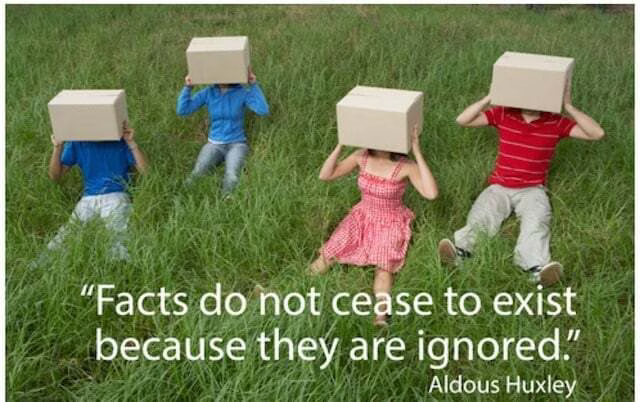People Reject Truth When the Conclusion Disagrees With Them

Some fascinating research has been done recently on why people reject data that seems incontrovertible.
The study from Duke University > showed that the issue wasn’t so much with the data itself, but with what the receiver of the information thought the implications would be. Here are some examples:
Liberals reject evidence that guns can help security in some situations because of what they think that means will be done with the information. They think it’ll mean everyone having a gun, and thousands more people dying every year, etc., and thus they simply close their minds to the data.
Conservatives reject evidence that climate change is happening because of what they think will be done with the information. They it’ll mean the government will put even more laws in place and tax them even more than they are now, and just generally overstep their bounds in numerous ways, and thus they close their minds to the data.
What I find fascinating, though, is how this concept relates so perfectly to free will.
The data and logic around arguments against the existence of free will are pretty compelling. But people map ahead in their minds what they think not having it would mean, and here are the steps:
Oh, so you say there’s good logic and data to show we probably don’t have free will.
Wouldn’t that mean that I’m not in control of my life? Wouldn’t that mean that nothing in life matters?
Your data and logic is shit. I just know in my heart that we have it.
Flawless.
It’s exactly the same with the liberals and conservatives above. If you believe something negative about how things would have to change if you accepted a given set of data, then we simply become blind and deaf to that data.
It’s fascinating when you realize that’s what’s happening, and I challenge you to watch for yourself and others doing the same.